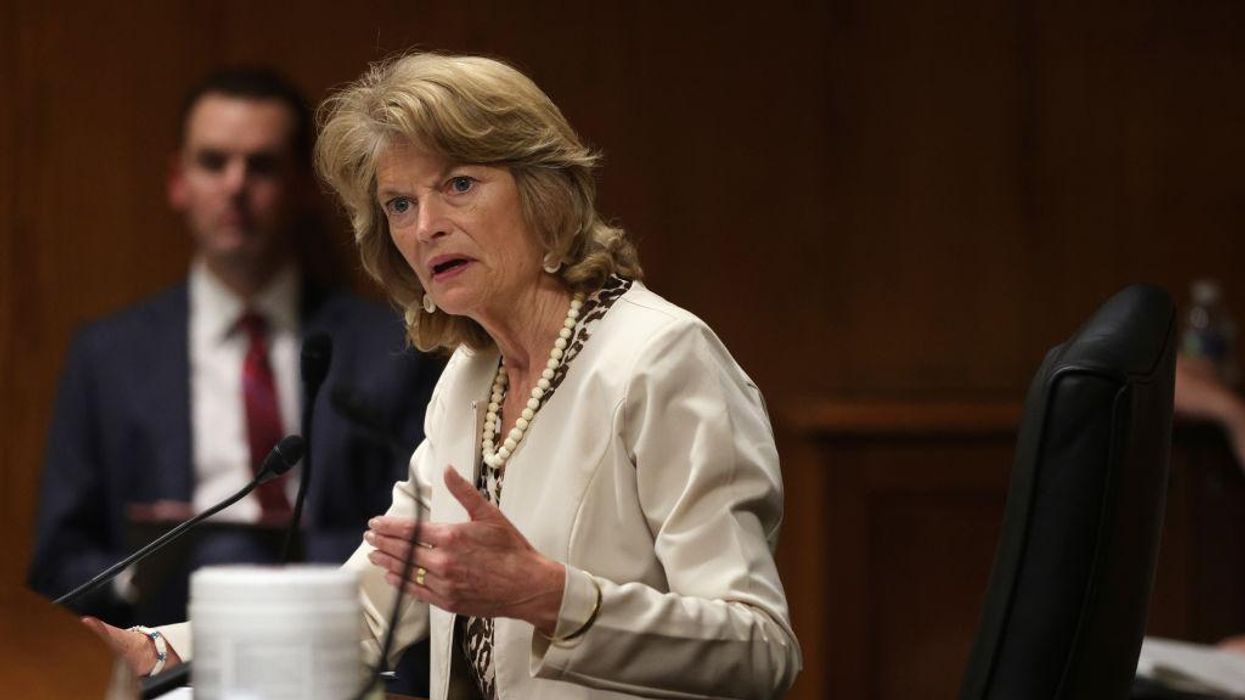
Alex Wong/Getty Images

Six Republican senators broke with Senate Minority Leader Mitch McConnell (R-Ky.) on Friday and voted for legislation that would create a 9/11-style commission to investigate the Jan. 6 riot at the U.S. Capitol.
The final vote for the commission was 54 senators in favor and 35 against, short of the 60 votes needed to break a filibuster from the Republican minority. Sens. Lisa Murkowski (R-Alaska), Rob Portman (R-Ohio), Ben Sasse (R-Neb.), Bill Cassidy (R-La.), Mitt Romney (R-Utah), and Susan Collins (R-Maine) voted for the commission with all present Democrats.
Two Democratic senators were absent. Sen. Pat Toomey (R-Pa.), who is retiring after his current term, missed the vote for a family commitment but would have voted "yes," a spokesman told NBC News.
The bill, which was negotiated by House Homeland Security Chairman Rep. Bennie Thompson (D-Miss.) and ranking member Rep. John Katko (R-N.Y.), passed in the House last week by a vote of 252-175, with 35 Republicans joining Democrats in favor.
The bipartisan agreement would have created a commission with 10 members, five appointed by each party, that had the power to issue subpoenas with the agreement of both the Democratic chair and Republican vice-chair or a majority vote of the committee's members.
Republican leadership came out in opposition to the commission, with House Minority Leader Kevin McCarthy (R-Calif.) claiming it would be "duplicative" and "potentially counterproductive" given ongoing bipartisan investigations into the events of Jan. 6 and criminal investigations conducted by U.S. law enforcement. Sen. McConnell echoed McCarthy's concerns, called it a "purely political exercise," and lobbied his Republican colleagues to oppose the bill.
Democrats and the media excoriated Republicans for opposing the bill, accusing them of covering-up what happened on Jan. 6 out of fealty to Trump.
Several Republicans feared the commission could be used by Democrats to politically bludgeon the Republican Party as the 2022 midterm elections approach. Sen. Marco Rubio (R-Fla.) told supporters in a video that the purpose of the commission was to damage Republicans.
Last night I read the bill creating a January 6th commission\n\nIt isn\u2019t designed to produce a serious inquiry\n\nIt\u2019s designed to be used as partisan political weapon \n\nI am a nopic.twitter.com/5T6l0Dkb9z— Marco Rubio (@Marco Rubio) 1621621973
"The Democrats control committees in the House; they control committees in the Senate. They can do investigations. Some of them already are. We're going to learn from that. Capitol Police has already done its own commission about what went wrong that day. We've already learned from that," Rubio said. "So there's plenty of attention already being paid to this — not to mention that the media, who doesn't stop talking about it, they're also looking at it. So everyone's looking at it. There's no cover-up."
"They have this thing that says in order to issue a subpoena, you need both the Republican and the Democratic side, evenly divided, to agree with it. But that's not the point for politics; you don't actually need the subpoena. All you need is a story out there saying, 'Congressman so-and-so -- they want to subpoena him or her, but they can't because the Republicans are blocking it,'" he explained.
"And then the stories are going to be, number one, it creates this impression that maybe Congressman so-and-so did something wrong -- why would they want to subpoena him? And number two, the story will be 'Republicans are covering up the investigation into Congressman so-and-so.'"
But the Republicans who voted for the commission said an independent probe was needed for the truth about what happened on Jan. 6 to come out.
Sen. Romney said Wednesday "Republicans would be seen as not wanting to let the truth come out" if they voted against the bill. "I don't believe that's what's the motivation but I think that's the perception," he added.
Sen. Murkowski lambasted her GOP colleagues who opposed the bill.
"We just can't pretend that nothing bad happened, or that people just got too excitable. Something bad happened. And it's important to lay that out," she told reporters Thursday evening.
"To be making a decision for the short-term political gain at the expense of understanding and acknowledging what was in front of us, on January 6th, I think we need to look at that critically," she said.
After the vote, Sen. Cassidy released a statement explaining why he voted "yes," saying an independent commission would have guaranteed Republicans have "equal power" over the investigation's proceedings.
"Without this commission, there will still be an investigation. But it will be a House select-committee set up by Speaker Pelosi — the nature of which will be entirely dictated by Democrats and would stretch on for years," Cassidy said.
"I am concerned about Speaker Pelosi's role regarding the lack of adequate security at the Capitol on the day of the vote certification. It's hard to believe that an investigation entirely run by Democrats would fully evaluate this concern. We can be more confident that the independent commission would thoroughly investigate this issue," he continued.
"The investigations will happen with or without Republicans," Cassidy said. "To ensure the investigations are fair, impartial, and focused on the facts, Republicans need to be involved."
Cassidy not telling reporters why he voted yes. Handing us this statement instead: \n\n\u201cThe investigations will happen with or without Republicans. To ensure the investigations are fair, impartial, and focused on the facts, Republicans need to be involved.\u201dpic.twitter.com/4y0mOWrIS9— Andrew Solender (@Andrew Solender) 1622216642